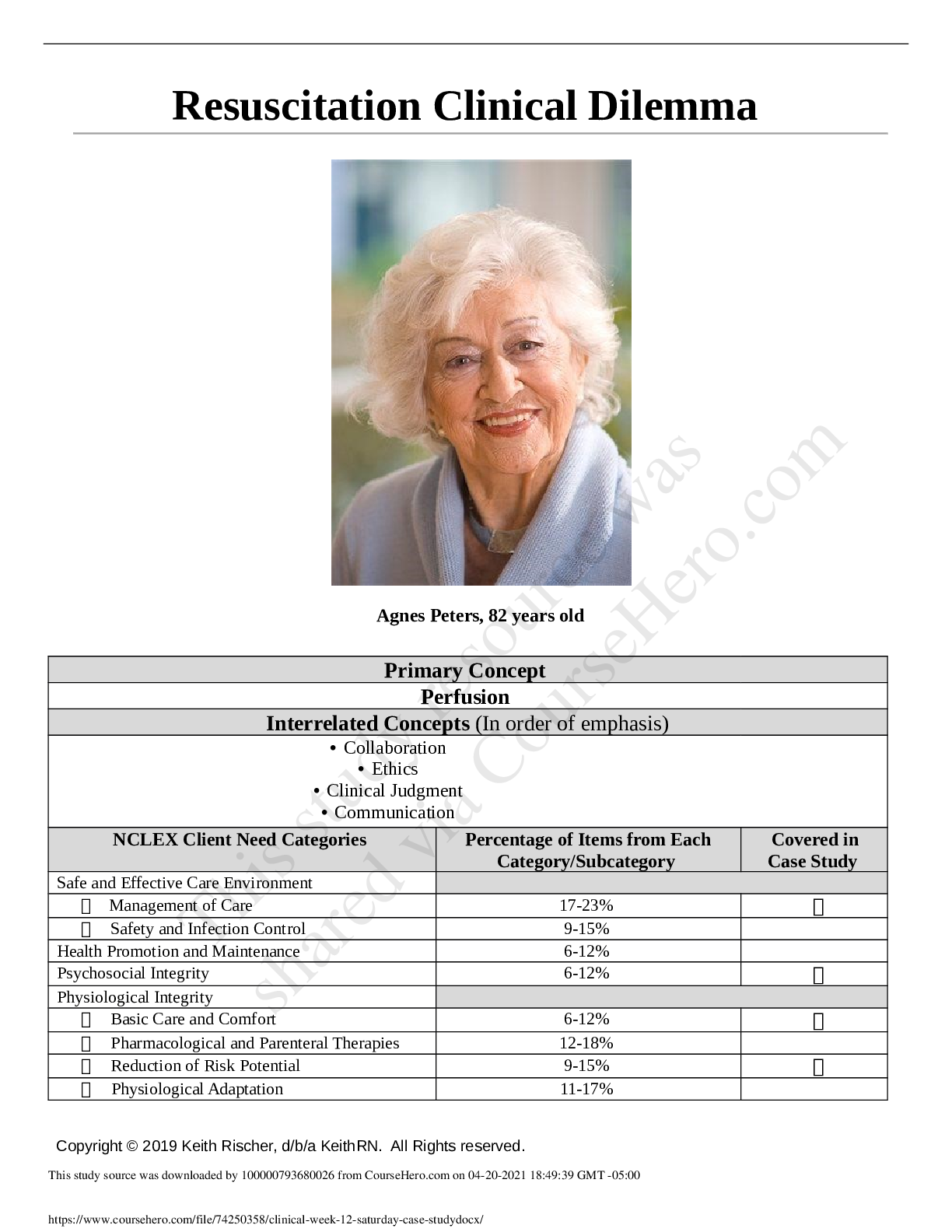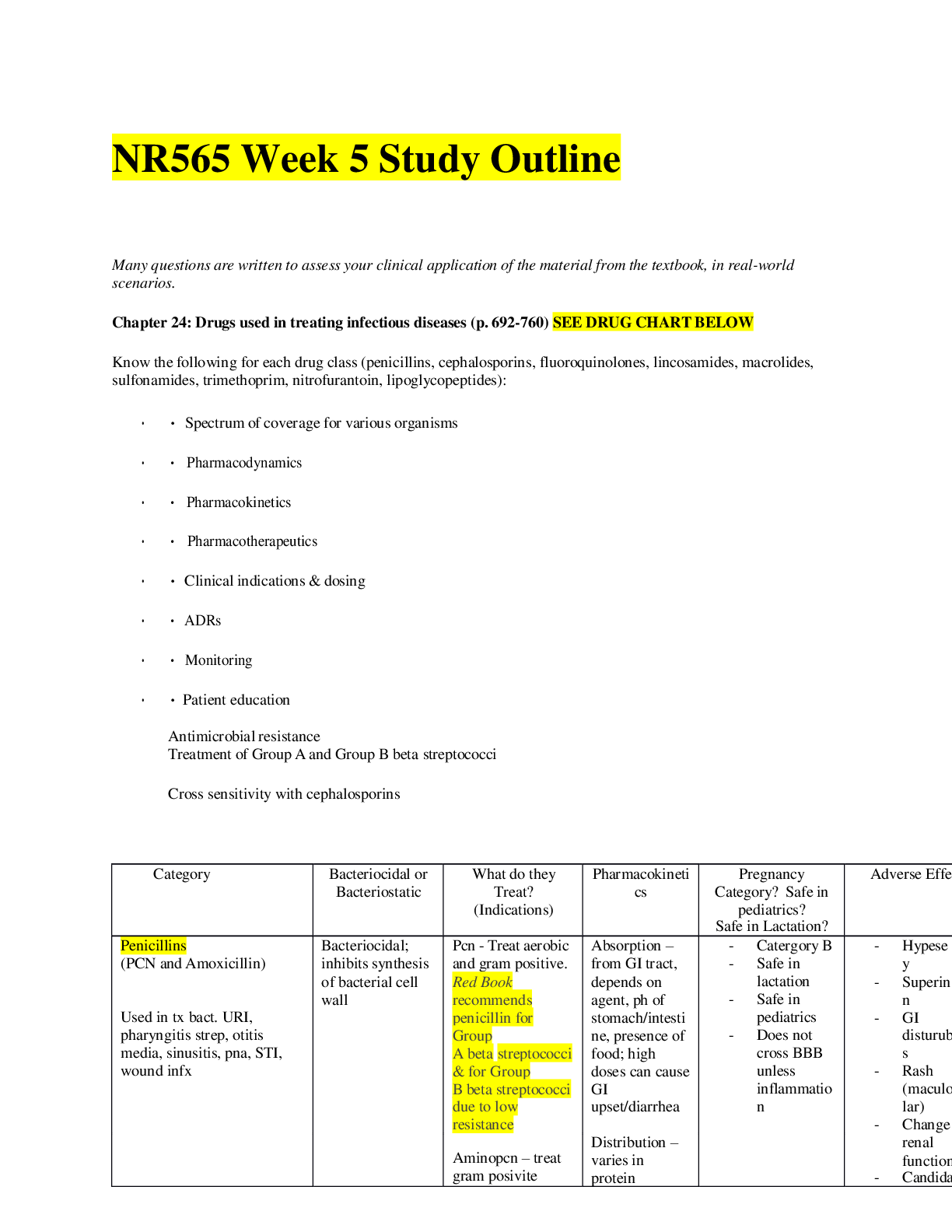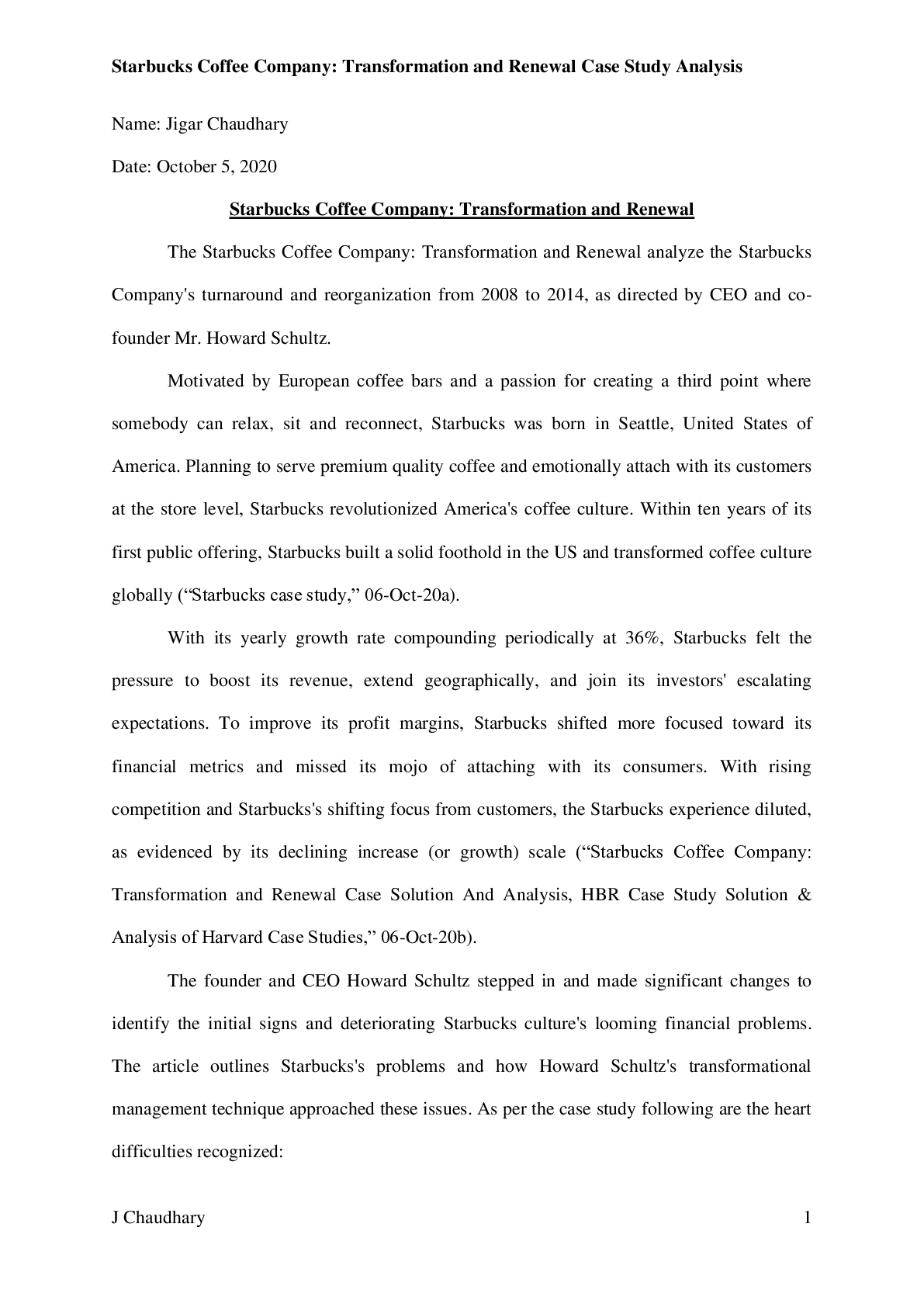*NURSING > CASE STUDY > DSJDK JADJLAK>Mental Health Care Patient Management System CaseStudy (All)
DSJDK JADJLAK>Mental Health Care Patient Management System CaseStudy
Document Content and Description Below
This case study is based on a real system that is in use in a number of hospitals. For reasons of commercial confidentiality, I have changed the name of the system and have not included information ... about any specific system features. 1. Background A regional health authority wishes to procure an information system to help manage the care of patients suffering from mental health problems. The overall goals of the system are twofold: 1. To generate management information that allows health service managers to assess performance against local and government targets. 2. To provide medical staff with timely information to facilitate the treatment of patients. The health authority has a number of clinics that patients may attend in different hospitals and in local health centres. Patients need not always attend the same clinic and some clinics may support ‘drop in’ as well as pre-arranged appointments. The nature of mental health problems is such that patients are often disorganised so may miss appointments, deliberately or accidentally lose prescriptions and medication, forget instructions and make unreasonable demands on medical staff. In a minority of cases, they may be a danger to themselves or to other people. They may regularly change address and may be homeless on a long-term or short-term basis. Where patients are dangerous, they may need to be ‘sectioned’ – confined to a secure hospital for treatment and observation. Users of the system include clinical staff (doctors, nurses, health visitors), receptionists who make appointments and medical records staff. Reports are generated for hospital management by medical records staff. Management have no direct access to the system. The system is affected by two pieces of legislation (in the UK, Acts of Parliament). These are the Data Protection Act that governs the confidentialityMHCPMS Case Study 2 of personal information and the Mental Health Act that governs the compulsory detention of patients deemed to be a danger to themselves or others. The system is NOT a complete medical records system where all information about a patients’ medical treatment is maintained. It is solely intended to support mental health care so if a patient is suffering from some other unrelated condition (such as high blood pressure) this would not be formally recorded in the system. 2. Viewpoints and Concerns This case study was originally developed to illustrate the DISCOS method which support the derivation of dependability and functional requirements for systems which may be implemented using off-the-shelf components. The DISCOS method supports the derivation of requirements from a number of viewpoints with the requirements elicitation and analysis driven by a set of concerns. Viewpoints reflect the requirements from different classes of system stakeholder. Concerns reflect organisational goals, constraints and external requirements. A paper on the use of DISCOS is included as an appendix to this document. A more detailed slide set with a comprehensive description of DISCOS is available for downloading at: http://www.software-engin.com/Resources/DISCOS 2.1 Concerns Concerns are intended to represent high-level organisational goals that are often vague and poorly specified. These are important to the success of the system and so the requirements engineering process must try to understand their implications for the system. However, the nature of concerns is such that some aspects will always be vague (e.g. the notion of ‘reasonable’ costs) and subject to individual interpretation. The principal concerns in the MHCPMS are: 1. Usability. The system must be used by a range of staff, often working under time pressure and with different levels of experience using computer-based information systems. 2. Safety. Patients may cause harm to themselves or others. The provisions of the Mental Health Act must be taken into account. 3. Privacy. Patient privacy must be maintained according to the Data Protection Act and local ethical guidelines.MHCPMS Case Study [Show More]
Last updated: 1 year ago
Preview 1 out of 15 pages
Instant download
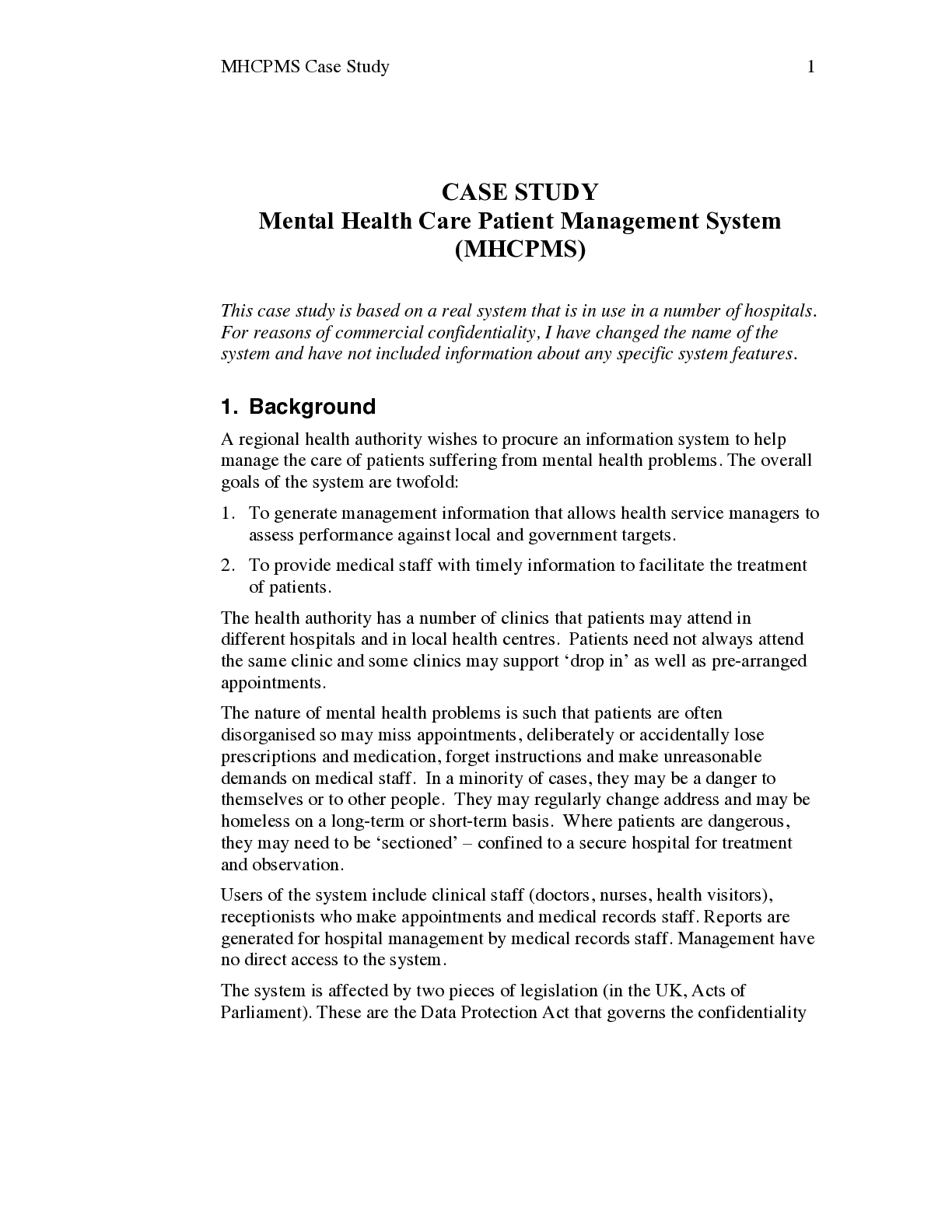
Buy this document to get the full access instantly
Instant Download Access after purchase
Add to cartInstant download
Reviews( 0 )
Document information
Connected school, study & course
About the document
Uploaded On
Apr 14, 2021
Number of pages
15
Written in
Additional information
This document has been written for:
Uploaded
Apr 14, 2021
Downloads
0
Views
34


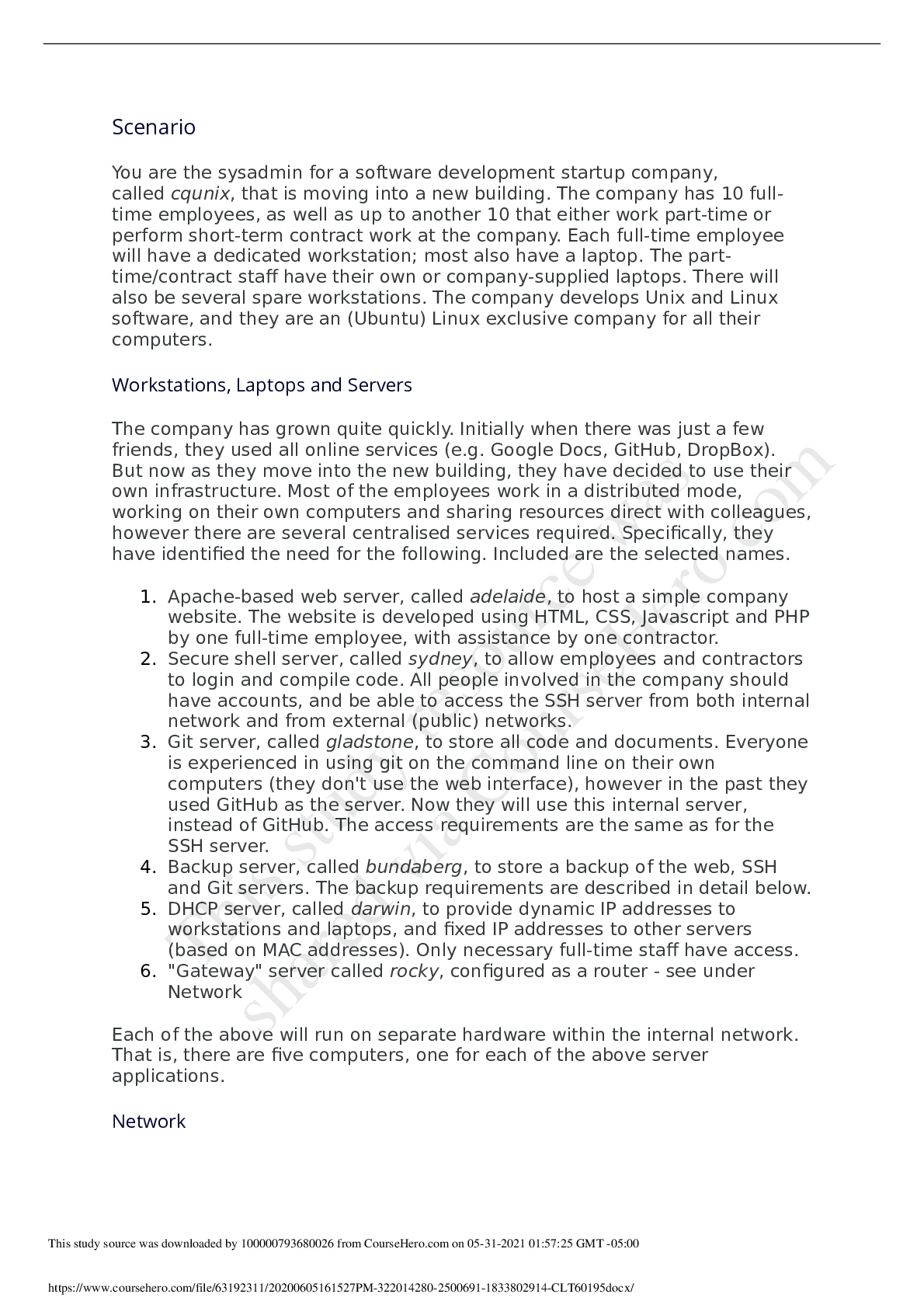
.png)


